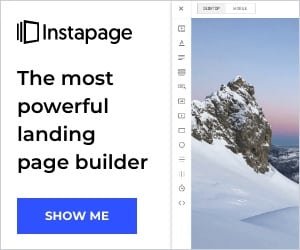I’m going to recommend the use of WordPress to build a website, simply because it’s easy, quick, has pretty decent built-in SEO, and has tons of customization options available for appearance, security, functionality, etc. I’m not going to give you a step-by-step guide to building a site with WordPress, because there are thousands of those online already.
Just search Google or YouTube if you need a tutorial on how to build a site with WordPress. It’s a lot easier than you probably think!
You’ll need the following:
-
- A domain name purchased through NameCheap or another registrar
-
- Hosting purchased through NameCheap, HostGator, or other
-
- WordPress, free and easy installation often included in hosting
-
- A WordPress theme, free or paid
Once you have a basic website built, all you have to do is start adding content. You can create this content yourself, or hire someone to do it for you. Just make sure the content is well-written, grammatically correct, and interesting because Google has become a lot more strict about the quality of the content it indexes. We’ll talk more about content creation in the next section, so let’s move on.
Content Creation
The content on your site is probably the single most important element of this system for many reasons. Because you won’t be focusing solely on getting traffic from Google and sending that traffic straight off to an Amazon product, the content on your site must attract the right types of traffic and grab and keep their attention and interest. We’re going to take a look at a few different factors regarding the content on your site.
Content Quality
The quality of the content on your site will have a lot to do with its success—more so than ever before. Not only are web surfers more in-tune with what quality content should be like, but Google also uses quality as a ranking factor.
Google does check the overall content on your site to make sure it’s relatively free of typos and errors, so it’s important to make sure your content is well written.
In addition to this, Google also pays attention to the average length of time a visitor spends on your site, and whether or not they visit other pages of your site. This is known as “bounce rate”. If you have a high bounce rate, it means people are leaving your site without looking at any other pages, which Google takes to mean your content isn’t what people are looking for. This will hurt your rankings.
Google wants to see the average user staying on your site for a good length of time, as well as visiting other pages. Make sure your content quality supports this! Keep in mind that visual content like videos and photo slideshows, along with interactive content like quizzes and surveys, are more likely to go viral and bring in a lot of traffic, as well as getting people to spend more time on your site.
Make sure you include relevant images in your articles, too. Images are vitally important these days. Not only do they make your article more interesting to visitors, but they provide a great way to let people share your content on social media and bring you more traffic. If you don’t include relevant images, you won’t see anything show up on social media, or you’ll see only your site’s logo or background, which could be worse than having no image at all.
Content-Length
The length of your content goes hand-in-hand with its quality, at least in the eyes of Google. While it’s been proven that the average surfer these days has a very short attention span, Google seems to think that very, very long content is “quality”, and short content is not.
It used to be that putting up ten 150-word articles would bring in far more traffic than putting up one 1,500-word article, but those days are gone. These days, content should belong—the longer, the better. Not only that, but Google seems to favour content that is actually updated on occasion—meaning it’s better to add a bit of content to an older article than to create a new one—at least once your site already has a good amount of content on it.
Generally, articles should be at least 500 words, and up to 3,000 (perhaps longer in some cases) is even better. Who knows why Google seems to be so adamant about longer content considering declining attention spans, but as it is length matters.
Content Variety
Another important factor is making sure you create a variety of content, including various forms of media such as videos, slideshows, and even downloads. You don’t actually have to create videos yourself. You can just embed other people’s videos in your pages. But if you can create your own, it will help you get additional traffic from places like YouTube and Facebook.
Having a variety of posts on your site will help you get more traffic and make your site more interesting, so try to include some different types of content for variety. Aim for having at least ten posts on your site before you attempt any type of promotion or add any affiliate links. This will help you rank in Google, as well as giving visitors additional content to visit, hopefully lowering your bounce rate.

